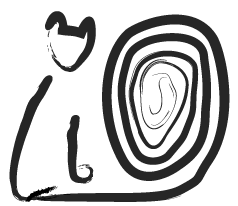
Articles in the Times and the Buzzfeed are good reminders of just how privileged we are. I include in this statement everyone who is reading this on a computer, or has the option to. I’ve been thinking a lot about the folks I worked with doing supportive services in low-income housing. Even those who joined Xfinity’s $10 a month internet program usually couldn’t afford a decent computer. And this was in an area where good broadband was available in the first place.
This crisis is dramatically underscoring how socioeconomically divided the US really is. Poor people in the city often don’t have access to the internet, and can’t afford to keep their phone on much of the time, let alone buy a data plan that will address their needs. They are cut off from the information and communication so many of us take for granted. And they face an understaffed and overextended network of safety net services.
The rural poor are in even worse shape, having little access to broadband even if they can afford it. On top of that, they often have little access to public health resources, food banks, and other aspects of a cobbled-together safety net.

Class is a factor everywhere, of course, and all over the developed world the people losing their jobs are the people who can least afford it, and the people risking their lives to provide us with groceries and other essentials are certainly not the wealthy, nor even the tattered remains of the middle class.
I keep coming back to something a Finnish friend told me when she was preparing to come to the US for an extended visit, though. She said she didn’t consider the States a first-world country. This was back in 2006. Things have not, on the whole, improved.
Not being a first-world country during this crisis is a terrifying notion.
None of this is to say, of course, that our situation in any way compares to catastrophe faced by most nations in the developing world.
But it is to say we fall far short of where we should be. Like other nations with large income inequality, our health care is tip-top, if you can afford it. Our broadband is fast, if you can afford it. Our technology is cutting edge, if you can afford it. Our education system is second to none, if you can afford to live in certain places, or now if you can afford to access it online.

This profound gap was already a life or death issue for many poor people in America. And now it is becoming more and more starkly obvious. In this crisis, your income may be a determinative factor in whether you live or die. Hospitals in rural areas will be swamped quickly and easily. The wealthy will be evacuated to cities with larger hospitals. And we will lose people on the new front lines of our food supply chain — our food processors, our factory workers, and our supermarket clerks, to say nothing of our army of underpaid delivery drivers.
Your income may be a determinative factor in whether you live or die.
As Americans, are we okay with that?
